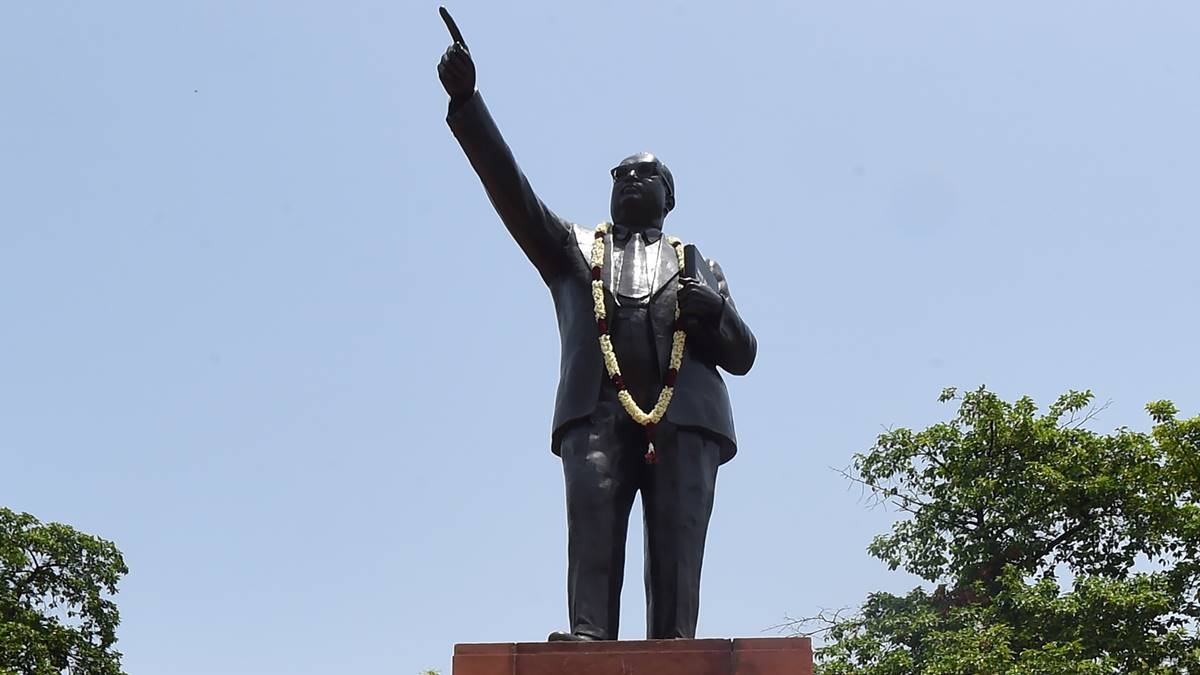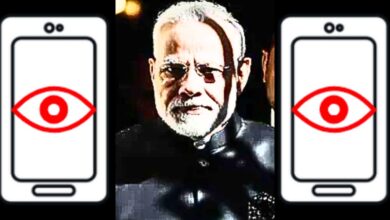Amrit Kaal’s Educational Renaissance: Preserving History While Students’ Futures Gather Dust!

Reviving an 850-year-old university is commendable, but not at cost of the careers of millions of NEET and NET students. Allocating significant funds for new IIMs, yet failing to secure placements for the graduates of existing IITs and IIMs. This is the fate of education in ‘Amrit Kaal ‘!
Recently, on June 19, 2024, PM Narendra Modi inaugurated the new Nalanda University campus near the ruins of the institution’s ancient avatar, which was once the epitome of knowledge and was destroyed by Bakhtiyar Khilji. This was definitely a proud moment for the entire nation as this university was not only an ocean of knowledge and education but was also a mirror of the greatness and wisdom of ‘Akhand Bharat’.
By praising the newly built university, the PM of India said that the university is an Identity, an honour, a value, a mantra, and a saga, highlighting that despite the destruction of the ancient university’s libraries by invaders in the 12th century, the essence of knowledge remains indestructible. As a country, we all are very proud of the renaissance of our culture and educational heritage.
However, glorifying one aspect and ignoring others can be a dangerous call for the bright future education of the nation. While Mr Modi’s cabinet is busy praising the onset of Nalanda Univerity, there is barely anyone who is talking about the plight of millions of students who are affected by the compromised examination processes of NEET and UGC-NET conducted by NTA, which claims itself as a premier, specialist, autonomous and self-sustained testing body to conduct entrance exams for admissions/fellowships in higher educational institutions.
Recalling the entire deadly incident of NEET row, let’s focus on the fact that no matter how many educational institutions can be established, the ultimate success of those organisations lies in the hands of the people who run them. If they are incompetent, then the praise of a mere building enchanted with the echoes of the past will not give quality education to the future.
NEET
The NEET is one of the toughest entrance examinations in India, and it gives opportunities to students who want to pursue careers in the medical education and who, in the future, will enhance the structure of healthcare in the country. After the results, which were declared 10 days ahead of their planned date on June 4, 2024 (coinciding with the election day results), the students were either supposed to see their future in medical colleges or work on PLAN B of their careers. However, this year saw these young minds protesting on roads under the scorching sun for their rights, for their futures, and even after so many efforts and days, there is no justified solution coming to their plates.

Now the students have become so frustrated, which is obvious that many have turned their careers from studying in Indian colleges. Students seeking admission to medical institutions are exploring alternate options. Some are taking a year off to prepare for the next round, while others are looking at overseas universities or domestic Bachelor of Science (BSc) degrees.
Adarsh Khandelwal, cofounder of Collegify’s, stated that the study abroad portal had received inquiries from hundreds of NEET candidates this year. Most are looking for abroad opportunities and related fields. Many students are now exploring new subjects such as genetics, biomedical sciences, and pharmacy. Some are even taking a gap year to prepare for the UK Clinical Aptitude Test for medical school admissions in the following session, he added. It’s unfortunate that many students don’t trust the processes and are leaving Indian colleges!
NET
Ahead of that, another prestigious exam that holds the future of upcoming professors and research associates, who are the bedrock of research and development of the nation, came under fire after the UGC-NET was cancelled, claiming that the ‘integrity of the exam is compromised’. How ironic is that, on June 19, on the one hand, our PM inaugurated Nalanda University. On the other hand, the University Grants Commission (UGC) received certain inputs from the National Cyber Crime Threat Analytics Unit of the Indian Cyber Crime Coordination Centre (I4C) under the MHA on the Examination, giving prima-facie inputs that indicate that the integrity of the aforesaid examination may have been compromised.
As per the recent news, the testing agency, the controversial NTA, said in a circular that the exam had been postponed due to “unavoidable circumstances as well as logistic issues”. Let’s recall why NTA was formed. The NTA was formed to determine the “competence of candidates” for admission and recruiting. According to its website, It is responsible for exam preparation, distribution, and marking. Now, the agency is facing logistic issues. If that is not a representation of mismanagement in the agency, then what could it be called?
This is not the first case of error conducted by the controversial NTA. There are enough incidences to show that the agency was of a compromising nature from its inception. And if we say that the body has incompetent authorities, then it is correctly incorrect. Then what is left? Of course, it is the great tale of CORRUPTION in the Indian economy.
But are we so paralysed in front of money that we are compromising the fate of students who will, in turn, be the wheels of the nation in the future? Just imagine if the discrepancies of the NEET row had not come under the limelight, then our nation would have been equipped with doctors who know nothing about medics and have just earned prestigious degrees in exchange for money. Are we so dumb to empower our nation with such compromised doctors who would paralyse the entire healthcare system of the country?
Have India’s ministers lost their moral responsibilities?
In the initial days after the alleged scams came to light, the head of NTA and the education minister both stood firmly on their grounds that no such scandal had occurred under the NTA. However, in recent days, after so much ire from society, the education minister, Mr Dharmendra Pradhan, has accepted that there are discrepancies in the process. Hence, a high-level committee will be formed to investigate the same. However, on moral grounds, shouldn’t Mr Pradhan should resign from his position, as the person upholding the ministerial position is held accountable for everything going under him?
Similarly, we saw deadly rail incidents in the last few years, which killed several citizens of this nation. One of the deadliest ones was the 2023 Odisha train collision, where Coromandel Express collided with a goods train, killing 296 people and 1200 injured. On moral grounds, the railways minister, Mr Ashwini Vaishnaw, should have resigned from the position.
However, it didn’t happen so, and in Modi 3.0, he is again given the rail ministry and look at the fate again; such a collision took place recently in the Chicken Neck corridor, where a goods train collided with Kanchanjunga express, signalling the mismanagement of individuals under the railways. Again, the opposition demanded the resignation of Mr Vaishnaw on moral grounds, but nothing happened.
On one hand, Mr Modi leaves no opportunity to embrace the success of ‘Vande Bharat Express’; however, on the other hand, he says nothing about the negligence of railways leading to the collision and killing of citizens of India, who voted for him to power.

In yet another incident, Mr Brij Bhushan Sharan Singh was accused of exploitation of women wrestlers in the country. He should have resigned from his position; however, as usual, nothing much happened. On the contrary, the BJP gave his son a ticket in the latest 2024 elections.
Once, there was a time when ministers of india used to resign on moral grounds, as they failed to uphold the responsibility of the honourial position given to them. For instance, on November 25, 1956, Railway Minister Lal Bahadur Shastri resigned from his position, citing moral responsibility for the rail disaster at Ariyalur, 174 miles from Madras, which killed 152 people and injured numerous more.
Gone are the days. Such highly valued persons are no more. Today, everyone is concerned about politics so much that they do not care about the citizens of India, who have ultimately voted them to power. In a recent case, rather than discussing what happened wrong and finding a solution to rectify the problem, Senior BJP leader Amit Malviya posted to X comparing the railway accidents under Congress rule and the BJP rule!
The situation has reached the point that Mr Alakh Pandey, the founder of Physics Wallah, asserted in a recent TV debate that ‘rather than founding the solution of NEET controversy, everyone is focussed on the politicisation of matters for party’s interests’. It’s sad that the lives of the people of India are nothing more than a topic of politics for our esteemed politicians.
Till here, it was all about the NTA-NEET row. But the ill fate of Indian education doesn’t end here. There are various more instances to show how crippled our education system is.
On the one hand, the Modi cabinet leaves no stone unturned to praise the recent establishment of new IITs and IIMs over the last decade, ruthlessly ignoring the plight of existing ones.
As per the news of April 2024, some of the IITs are facing hurdles in securing placements for their students of the current batch because of poor employment opportunities, claims Dheeraj Singh, IIT Kanpur alumnus and founder of Global IIT Alumni Support Group. He said around 30 % of students are still unplaced in the top-ranked older IITs, and around 50 % of students are still unplaced in the newer IITs. Based on the data shared by unplaced IIT students in his mentoring group, Singh claims around
- 32.6 % of students are unplaced in IIT Madras,
- 35 % in IIT Kanpur,
- 36 % in IIT Bombay,
- 30 % unplaced in IIT Kharagpur,
- 30 % unplaced in IIT Guwahati,
- 40 % in IIT ISM Dhanbad,
- 40 % in IIT Hyderabad,
- 45 % in IIT Jammu,
- 35 % in IIT Delhi,
- 35 % in IIT BHU Varanasi,
- 40 % unplaced in IIT Patna,
- 35 % unplaced in IIT Gandhinagar,
- 25 % unplaced in IIT Goa,
- 50 % unplaced in IIT Bhilai, and
- 30 % in IIT Bhubaneswar.
A news outlet asked IIT Madras about placements, and the institute stated they are still going on. “Students have a wide range of interests: some want to continue further education, others want to create their businesses and become entrepreneurs, and others want to take competitive tests such as civil services. They take their time making decisions. The placement data will be accessible by the end of July 2024, following convocation,” the institute said in a statement to the asking news site.
Not only IITs, the news dated January 2024 acknowledges the similar fate of placements in India’s elite business schools as well. The issue was so critical that placement cells at IIMs have attempted to activate their tremendous alumni networks as they confront the difficult challenge of placing their largest graduating classes ever in a volatile global employment market. Recently, Assam CM Mr Himanta Biswa said that the centre has allocated funds to establish the first IIM of Assam, proclaiming it to be a ‘game changer’ for higher education in the region.
However, will this new establishment guarantee that it will be able to place every student who enrols in this centre, paying lakhs of fees and giving two years of their lives? Moreover, will the entrance exam conducting body ensure that the entrance exam is fair and that no such incidence of NEET and NET will be repeated, thrashing the minds of myriad students in the country? We are very near to expect the release of CAT 2024 dates. The agency should make sure that NEET and UGC-NET row will not be repeated in CAT!
The data of these dismal placements can be a bit different; however, that doesn’t deny the fact that even prestigious organisations like IITs and IIMs are also struggling to provide quality education to the future of the nation, which may help them land favourable jobs. It may be due to the nature of changing jobs over time; however, it is the responsibility of the premier institutes to take the accountability on their shoulders.
If still, after reading about the pathetic case of paper leaks in our country and the fate of dismal placements by the premier institutes, you are not worried, then read this. Minister for State for Women and Child Development, Savitri Thakur, fails to write the ‘Beti Bachao Beti Padhao’ slogan, which is pretty much the main motto of her party and Ministry. Making mistakes is not a new phenomenon for political leaders.
Politicians continue to make mistakes, from mispronouncing words to using innuendos. It may happen like the Minister could not have heard the slogan properly, but this event draws attention to how ministers in our country, who have been given such positions of responsibilities of shaping the kids of the nation, do not even hold the basic minimum education and are doubtful to hold such honourable positions of the cabinet.

Thakur’s affidavit indicates she has completed education up to standard 12. There is no minimum qualification needed to hold ministerial positions in India. This draws the utmost attention that should be raised in parliament, and every minister should hold a basic minimum justified education to hold such responsible positions. This is more crucial as, with changing times, if someone of undesirable education holds such a designated position, it will definitely hamper the progress of the segment and, in turn, will compromise the nation’s growth.
But as the fate continues, will anyone raise the point of education of ministers in the parliament? The chances of questioning having a minimum education for ministers’ answers sound difficult as every party is just concerned about their politics, and we doubt if anyone could rise above their personal gains and take a stand for the ‘safety of the democracy’.
On the one hand, we are asserting statements to become a Vishwa Guru, aka, a global leader. On the other hand, this global leader has a plethora of corrupted managers, incompetent systems, and unjustified ministers on the cabinet. We may be the biggest democracy in the world. Still, in reality, ‘India has become the most crippled democracy of the world, thanks to the powerful ministers and the so-called competent government machinery’! Reviving History While Neglecting the Present could lead to a catastrophic decline in the quality of Indian education in the future!
Remember these words from ‘The Father of Indian Constitution, Honourable Mr BR Ambedkar’ that ‘however good a Constitution may be, it is sure to turn out bad because those who are called to work it happen to be a bad lot. However bad a Constitution may be, it may turn out to be good if those who are called to work it happen to be a good lot’.

“If hereafter things go wrong, we will have nobody to blame”……






